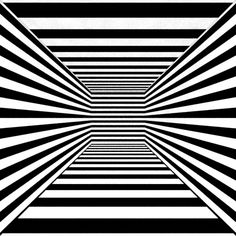|
(2019
final exam assignment) Model final exam answers 2019 (Index) Essay 3: Web Highlights |
 |
Heidi Kreeger
The Future of Our Classrooms
As an aspiring English teacher I am constantly preoccupied with imagining what
my future classroom experiences will be like. I know that the learning
environment that I provide will be very different than the one I encountered
growing up, but anxiety enters the picture when I feel the pressure to ensure
that change is a good one. Thankfully, after reading the writings of some of my
peers I feel reassured that progress is being made in the right direction.
Literature classes are including more genres than ever before, including
narratives of the future. The characters presented within those genres are more
diverse and representative of my future student body, and the subject matter
presented is more poignant than ever.
It was after reading an essay by JohAnna Hunter entitled “The Rise of Future
Literature in the Classroom” that I started to become inspired. She encountered
an antiquated and “boring” experience in her literature classrooms growing up
because her “love for [genres such as science fiction] was not really welcomed
into the academic classroom”. This is a problem I encountered myself as most of
the novels I was assigned to read were canonical or considered old “classics”.
But Hunter’s ability to see this weakness as an opportunity for improvement is
impressive. There are two statements she made in particular that stick with me:
“Teachers of English Language Arts have an already tough task getting their
students to read, but by allowing them to choose the texts they enjoy, the goal
of teaching students to become independent literary scholars becomes less
daunting “and “There are countless subjects that science fiction could help
students understand tough issues that are otherwise hard to explain”. Here she
articulates thoughts similar to ideas I have had about how to not only make
literature interesting, but a meaningful gateway into learning about deeper
social issues.
The idea of literature being utilized as a tool to fight social issues is also
the focus of another essay written by Cynthia Cleveland entitled “Take it From
the Future”. Here she focuses on the opportunity to educate our youth about
climate change and in her research she found that “Our current rate of
consumption of resources, supposing the trend continues, suggests that we only
have about thirty-three years until we completely deplete our resource”. This
statistic is alarming but Cleveland does well to point out that one of the ways
we can combat this rate is by educating through literature. Future narratives
are particularly powerful in this area because they imagine all the possible
outcomes our current actions will cause. Or as Cleveland puts it: “concerns pop
up in science fiction for a reason, they are issues we must come to face at some
point in our future. We can choose to ignore them and continue to consume until
the world consumes us, or we can take more consideration.”
One of the aspects of literature (or any media) which makes an instant emotional
connection is relatability: is the reader represented in the story? This is one
of the areas in which science fiction and fantasy have received a lot of
criticism, since women and people of color were not historically included, or if
they were they were certainly not the protagonist. Laura Wilson addresses this
discrepancy in her essay “Subtle
Strength: Female Characterization by Women in Literature of the Future”. What I
appreciate most about her work is that she does not focus on the historical lack
of women but rather on the emergence of female science fiction writers in the
1970’s. She summarizes their strides beautifully when she says that
“These women have broken, and
continue to break stereotypes through their stories by portraying issues of
gender and sexuality as they pertain to women, not merely of women”.
I don’t think I could do a better job of explaining the type of literature
needed in the classroom as we move forward. I know that I personally would have
been much more interested in what I studied in high school if I could have
related to it more.
I love that some of my peers are just as consumed by reshaping the traditional
English classroom as I am. I believe it is so important to ignite a passion for
learning in students so that it comes across as the privilege it is as opposed
to the punishment it has often felt like in the past. By utilizing literature
that includes more genres, making sure our students are represented by that
literature, and tying it to relevant social issues I feel confident that we can
do that.



